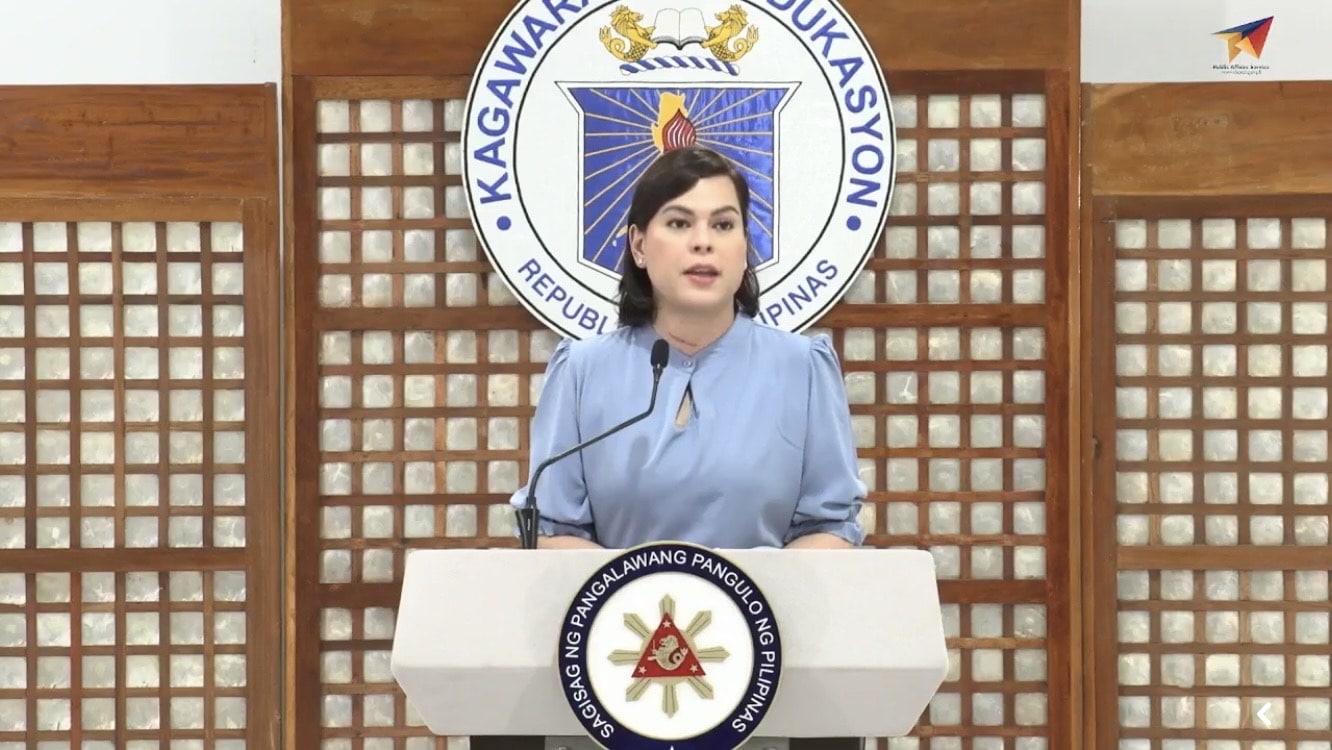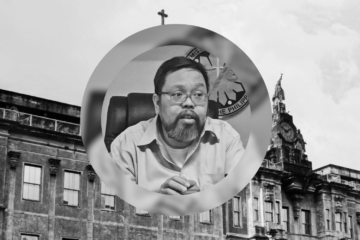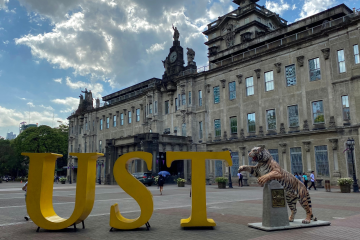
VICE PRESIDENT Sara Duterte’s decision to step down as Department of Education (DepEd) secretary was a “good thing” as it opened the opportunity for an education specialist to lead the agency, experts said.
The expertise of the upcoming DepEd chief will serve as the basis for his or her capability to handle perennial issues in the education sector, according to UST Political Science chair Assoc. Prof. Dennis Coronacion.
“That’s what most are expecting now because that’s the only way by which you know the head of the DepEd can really solve the problems within this national agency,” Coronacion told The Flame.
On June 19, Duterte stepped down as the education secretary and vice chairperson of the National Task Force to End Local Communist Armed Conflict.
Her resignation was supposed to take effect on July 19, but on Thursday, President Ferdinand Marcos, Jr. said a new DepEd chief would be named by the end of the week because the agency plays an important role. However, Marcos admitted two days later that he was having difficulties selecting Duterte’s successor because of the complex functions involved in the post.
Coronacion said Duterte’s lack of experience, her exposure to the education sector limited to being a student, clipped her ability to oversee the department.
“As [the] DepEd secretary, I think she had shortcomings, especially in terms of addressing many problems confronted by our public education system [like the] low number of teachers [and] the recent report that [Filipino] students were lowest in creative thinking,” the political science professor said.
The Philippines recently landed in the bottom four out of 64 countries in the latest creative thinking assessment of the Programme for International Student Assessment after Filipino students only scored an average of 14 points.
Coronacion also cited unresolved issues on classrooms, facilities and teachers’ low salaries that Duterte supposedly failed to address.
University of the Philippines College of Education Dean Jerome Buenviaje said the next education secretary should have field expertise, considering that “trivial” improvements have materialized in the sector despite Duterte’s two-year leadership.
“It is very timely since one-third of the Marcos administration [term] has already been rendered yet no significant change has been felt so far in the education sector,” Buenviaje told The Flame.
According to him, the incoming secretary must also pay attention to long-term solutions to health and nutrition issues, education quality, learning materials and professionals’ development and organization equity.
However, Buenviaje said Duterte’s resignation does not ensure a smooth transition for the new DepEd secretary and even poses uncertainty in mitigating issues in the sector, such as those related to the MATATAG Curriculum.
“Before her resignation, she (Duterte) should have ensured a clear roadmap to address the education crisis. Specifically, with the new MATATAG Curriculum, there should be a transparent and clearer plan for the rollout of this new curriculum,” the dean added.
The MATATAG Curriculum aims to decongest the K to 12 setup to make the curriculum more skill-focused and relevant to students’ employment and civic responsibilities.
“Now that she resigned, the remaining years of this administration have become uncertain to provide sustainable solutions to the country’s education crisis,” Buenviaje said.
“I just hope that [the] plans during VP (Vice President) Duterte’s term will still be honored by the incoming DepEd secretary and should ensure that real problems are addressed and prioritized.”
Power struggle
While the vice president did not provide a reason for resigning as education secretary, Coronacion said it may be due to a power struggle and a personal rift between the president and his allies.
According to Coronacion, political alliances and coalitions are formed to serve their members’ mutual interests, but a power struggle may occur when these interests no longer align.
“That’s the beauty of her resignation–she now has the freedom to speak her mind if she disagrees with certain policies with the current administration,” he said.
In a recent media interview, Duterte said she remains “friendly” with Marcos despite her departure from the Cabinet.
Marcos and Duterte formed the UniTeam alliance in 2021 to serve as the platform for their candidacy for president and vice-president in the 2022 elections.
Coronacion said a struggle between the Duterte and Marcos camps ignited following the rejection of the vice president’s request for confidential funds for her office and the DepEd.
Last year, the vice president faced controversy after the Commission on Audit confirmed her office’s use of P125-million confidential funds in 11 days in 2022.
Duterte later on withdrew her request for a total of P650 million confidential funds in the 2024 budget.
“That’s the time she started to feel that her interests [were] no longer being served by her allies in the government,” Coronacion said.
Coronacion also noted how Duterte’s father, former president Rodrigo Duterte, “frequently targeted” Marcos in his speeches during rallies. The Duterte patriarch had accused Marcos of being a drug addict, but the President said he won’t dignify the allegation.
Such remarks were followed by a Senate investigation on the alleged leaked documents of the Philippine Drug Enforcement Agency that supposedly showed Marcos’ alleged link to illegal drugs. The hearing was initiated by Sen. Ronald dela Rosa, a close ally of the former president who also served as his police chief.
“These symbols—the gestures [and] body language—they are all indicative of a rift, right? It’s on a personal level between the Marcos camp and the vice president’s camp,” Coronacion said.
Duterte-led opposition?
Coronacion said a Sara Duterte-led opposition composed of anti-Marcos and pro-Duterte politicians is expected to emerge during the 2025 elections. This may cause the vice president to use the 2025 polls to propel herself for the 2028 presidential race, he added.
“For Vice President Sara Duterte, if she garners more allies in the Congress, that is [a] momentum for her. It’s going to serve as a momentum leading to the 2028 presidential election,” Coronacion said.
The vice president has revealed that her father and her brothers, Davao 1st District Rep. Paolo Duterte and Davao City Mayor Sebastian Duterte, would each seek a seat in the Senate next year.
Coronacion said the 2025 elections would serve as the people’s “referendum” on the Marcos administration.
“Meaning to say, people would think whether the current administration deserves to be praised or criticized by electing or not electing his allies in Congress,” he said.
The two camps have also been colliding in key foreign policies, with Marcos leaning closely to a pro-US policy, contrary to the elder Duterte’s pro-China policy.
“President Marcos might have seen that the pro-China foreign policy of his predecessor did not give us a lot of benefits. In fact, China benefited more,” Coronacion said.
According to him, the younger Duterte could still pursue her advocacies and programs under the Office of the Vice President despite resigning from her other positions.
“It’s not the end of the world for Sara Duterte. What she did is she only left the Cabinet, but she’s still the VP. And as the VP, there’s still a lot of things she can do,” he said. F — with reports from Mc Neil Zyh Serrano




[…] RELATED: Duterte’s resignation as DepEd secretary for the better, experts say […]